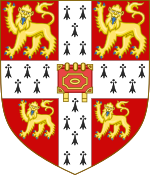History and Founding of the University
- University of Cambridge founded in 1209
- Scholars left University of Oxford for Cambridge after a dispute with local townspeople
- Recognized with a royal charter in 1231
- Cambridge already had a scholarly reputation before the founding of the university
- Oxford scholars began leaving Oxford for Cambridge due to conflicts with town authorities
- Chancellor of the university appointed in 1225
- Rents in Cambridge set according to the custom of the university
- Granted the right not to be drawn out for three years
- Colleges were initially endowed fellowships of scholars
- Hostels gradually absorbed by the colleges over the centuries
- Peterhouse, the first college, founded in 1284
- Multiple additional colleges founded during the 14th and 15th centuries
- Most recent college, Robinson, built in the late 1970s
Mathematics and Scientific Achievements
- University of Cambridge established as a global leader in the study of mathematics
- Mathematical Tripos examination initially compulsory for all undergraduates
- Lucasian Professor of Mathematics position at Cambridge
- Notable mathematicians and physicists associated with Cambridge, such as Isaac Newton and Stephen Hawking
- Cambridge played a significant role in the development of mathematical physics
Notable Alumni and Contributions
- Cambridge alumni have won 121 Nobel Prizes
- Notable alumni include Francis Bacon, Lord Byron, Charles Darwin, John Maynard Keynes, and Alan Turing
- Several historically iconic and transformational individuals in their respective fields
- 194 Olympic medal-winning athletes
- Cambridge alumni have made significant contributions to various fields, including literature, science, and politics
Women's Education and Gender Diversity
- The University of Cambridge was initially open only to male students for several centuries
- Girton College and Newnham College were established in the late 19th century as the first colleges for women
- Female students were allowed to take exams and receive diplomas from the late 19th century, but were excluded from the university's governance structure until 1948
- Undergraduate colleges gradually started admitting women between 1972 and 1988
- As of 2019-2020, the university's male to female enrollment was nearly balanced, with 53% male and 47% female students
Economic Growth and Modern Developments
- The Cambridge Phenomenon refers to the economic growth associated with the university's high tech and biotech industry
- 1,500 new companies and 40,000 new jobs were added between 1960 and 2010
- Silicon Fen, a business cluster launched by the university, played a significant role in this growth
- The university has been a source of employment and expanded wealth in Cambridge and the region
- High tech and biotech start-ups have flourished due to the university's influence
The University of Cambridge is a public collegiate research university in Cambridge, England. Founded in 1209, the University of Cambridge is the world's third-oldest university in continuous operation. The university's founding followed the arrival of scholars who left the University of Oxford for Cambridge after a dispute with local townspeople. The two ancient English universities, although sometimes described as rivals, share many common features and are often jointly referred to as Oxbridge. In 1231, 22 years after its founding, the university was recognised with a royal charter, granted by King Henry III.
The University of Cambridge includes 31 semi-autonomous constituent colleges and over 150 academic departments, faculties, and other institutions organised into six schools. All of the colleges are self-governing institutions within the university, managing their own personnel and policies, and all students are required to have a college affiliation within the university. Undergraduate teaching at Cambridge is centred on weekly small-group supervisions in the colleges with lectures, seminars, laboratory work, and occasionally further supervision provided by the central university faculties and departments.
The university operates eight cultural and scientific museums, including the Fitzwilliam Museum and Cambridge University Botanic Garden. Cambridge's 116 libraries hold a total of approximately 16 million books, around nine million of which are in Cambridge University Library, a legal deposit library and one of the world's largest academic libraries. Cambridge alumni, academics, and affiliates have won 121 Nobel Prizes. Among the university's notable alumni are 194 Olympic medal-winning athletes and several historically iconic and transformational individuals in their respective fields, including Francis Bacon, Lord Byron, Oliver Cromwell, Charles Darwin, Stephen Hawking, John Maynard Keynes, John Milton, Vladimir Nabokov, Jawaharlal Nehru, Isaac Newton, Bertrand Russell, Alan Turing, Ludwig Wittgenstein, and others.


